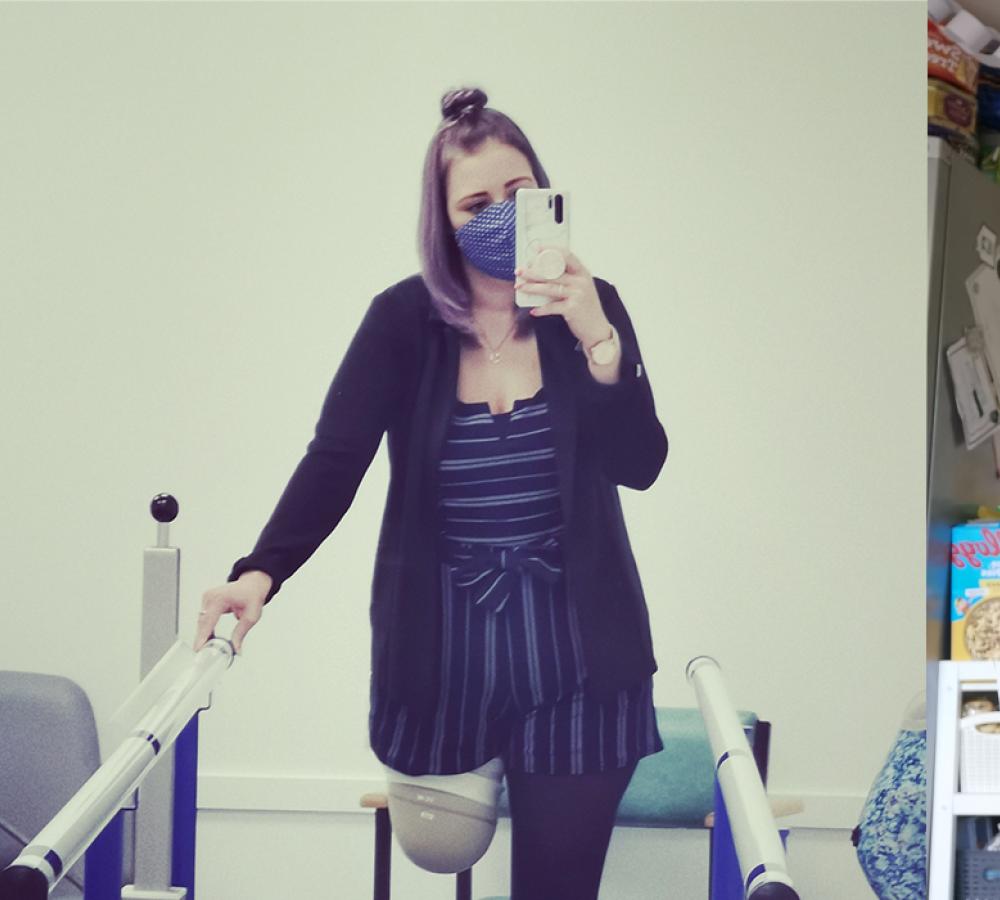Surgery for cancer
Surgery is one of the main treatments used to treat cancerous tumours – either on its own or in combination with chemotherapy or radiotherapy. Find out more about what surgery for cancer involves, how long it takes, side effects and what questions to ask.
- Surgery can be used to treat cancer, either by itself or with other treatments like chemotherapy or radiotherapy
- It can be used to take out cancerous tumours or cells, to reduce pain, or to rebuild a part of your body that’s changed during treatment
- The type of surgery you have will depend on the type of cancer you have had
- You might have some side effects after your surgery, but your clinical care team can help with them.
Why is surgery used to treat cancer?
Surgery is used to cut out a tumour and a small amount of healthy surrounding tissue – to make sure as many cancer cells as possible are taken away. The healthy tissue is called a ‘margin’.
Surgery is a local treatment, which means it only targets the part of your body that’s affected by cancer.
If your cancer hasn’t spread, it might be the only treatment you need. Chemotherapy and radiotherapy are often used after surgery, to kill any remaining cancer cells.
You might have surgery at the beginning of treatment, in the middle or at the end.
What type of surgery is used to treat cancer?
The type of surgery you have depends on the type of cancer you have. Your doctor and surgeon will talk you through everything beforehand.
You might have a general anaesthetic, which means you’re asleep during the operation. Some smaller cancers, for example skin cancer, may be removed using a local anaesthetic, where they numb the area first.
Some cancers can be treated using keyhole surgery, when a surgeon puts a camera into your body and removes the tumour by looking at your insides using a TV screen, and video taken by the camera. It takes less time to recover from keyhole surgery, but it’s only suitable for cancers near your belly and pelvis, and sometimes in your chest. This will be done under a general anaesthetic, where you’re asleep.
How does surgery for cancer work?
If you’re having surgery to treat cancer, the ideal outcome is that your cancer hasn’t spread and surgery removes a tumour and all cancerous cells.
The tissue that’s removed during your operation will be sent to be closely looked at, and will help doctors decide if you need more treatment.
Surgery can also be used in other ways during cancer. It can be used to reduce the pain caused by advanced cancer, by removing cancer cells that are touching a nerve, for example.
And surgery can be used to reconstruct parts of the body, like your bladder or breast, that have been removed during your treatment.
How long does surgery for cancer take?
The length of your operation depends on the type of cancer you have and where it is.
Your doctors will let you know how long it will last, and how long it might take you to recover.
What are the side effects from cancer surgery?
Your doctors will let you know about the possible side effects of your operation and how to deal with them, but the most common ones include:
Pain
You won’t feel pain during surgery, but you may feel it afterwards. Your nurses will give you painkillers, which will make a big difference, and you’ll also quickly figure out which movements to avoid. Try to resist the temptation to keep testing to see if things feel any better – it helps to be patient and give your body time to heal.
Bruises and swelling
You’ll get bruising and swelling as your body repairs the wound created by surgery. If this doesn’t improve as the days and weeks pass, or if your wound bleeds after your operation, get in touch with your doctor.
Feeling very tired
After surgery, your body focuses most of its energy on healing the affected area. But that can leave you feeling tired, especially as you’ll still be getting over the anaesthetic and might not fancy eating much either. Give yourself time to recover.
Infection
Your surgery team will do everything they can to make sure you don’t get an infection, but it can still happen. If your wound gets warm or red or starts leaking fluid, get in touch with your doctor straight away – you might need antibiotics.
Not wanting food
This is a common one, but usually passes in a few weeks. In the meantime, eat what you can when you fancy it.
Side effects from anaesthetic
You might feel fine after an anaesthetic, but they can do strange things to you. You might feel cold, sick, groggy or confused. Or you might feel sad, teary or anxious. This usually passes pretty quickly. Some people even ‘enjoy’ the side effects they get from anaesthetic!
Questions to ask about your cancer surgery
Never be afraid to ask questions about your cancer. And if you don’t understand the answers you get, keep asking until you do.
If your doctor recommends surgery, you might like to ask:
- What will be removed during surgery?
- What might the side effects be, and how can we reduce them?
- Are there likely to be any long-term side effects?
- What are we hoping the surgery will do?
- How effective is it likely to be?
- When will I be able to go home after the operation?
- How long is it likely to take to recover?
- Will I need to have any stitches taken out? If so, when?
- Will I need other treatments on top of surgery?
- Could other treatments work instead?
The information on this page is more than three years old.

